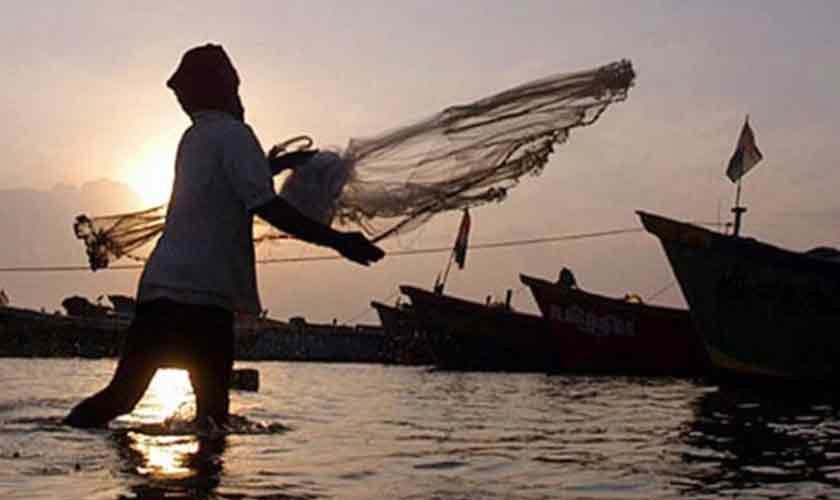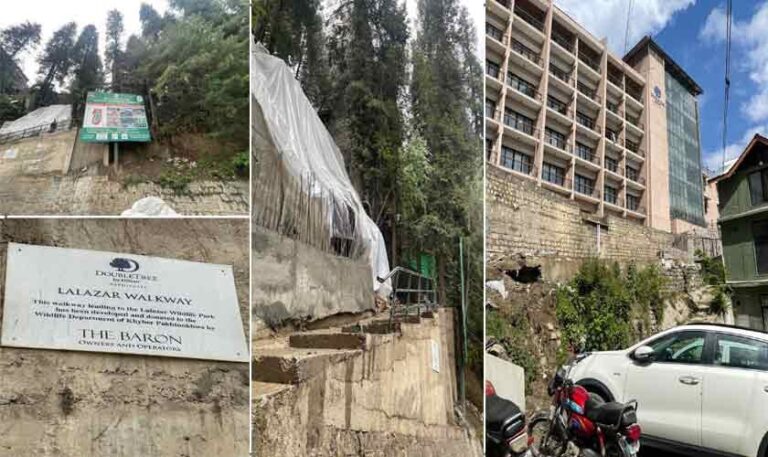
#Displaced #communities #Political #Economy
Due to pollution and dehydration, the rivers of southern Punjab reduce the rivers, Fisher Lok, who once developed with these waters, is being forced to migrate. With the fall of the fish population due to the unhealthy industrial waste and environmental degradation, the lifestyle of their centuries -old life is ending, which has turned them into climate refugees.
I meet a spacious (desi fisher-lock community) tribe. They have found a new house on the banks of the Chenab River in Rangpur, 40km from the head of Mohammad Walla. Children play with stream water, talking to each other in Sindhi. From birth to childhood, from settlement to the displacement, rivers in southern Punjab have offered them temporary asylum. They have sometimes set up a bank and sometimes the settlements on the other.
Fishermen, who have migrated from Sindh, have shifted many years of their lives across South Punjab. The special family has camped at several points on the banks of the Indus River before settling with the Chenab River in Rangpur.
Abid Hussain Mirani called his brother Sajid. The latter is out of fishing from 4am. “We are seven brothers. All three of us have already abandoned fishing. Our traditional way of life and our family profession, “They say.” Life has been like this for many years. All our ancestors were fishermen. His life was about living on boats in the river. But we have no choice. “
Mirani and six other families are now in Rangpur. Earlier, he has been based in Multan for three years. “We will live where we can live. This is not a new struggle. It has been a few years. How can we survive if there is no fish in the river? Once a river is full of garbage and poisonous, the fish does not survive.
“The whole world knows how Fisher is trying along the Indus River along the Indus River in the Lok Tunis Barrage. We decided to find a house along with Chenab. But in Multan too, the situation became unbearable. So we came to Rangpur. For Abid and his family, this permanent search for the place to settle is not an easy trip. That is why his brothers have quit the job. Abid says, “We are sinking in grief, not just because the river cannot maintain us anymore, but also because the river itself is so polluted.”
From scores to Tunisa Barrage, Leh, Kalabag, Chashma, Mianwali, Khushi, Multan and now Rangpur, these fishermen have moved down and down. What happens when the river flow decreases? According to Ghulam Mustafa Mirani, chairperson of the Pakistan Fisher Folic Forum, the loss of industrial waste and non -treatment drainage in the rivers has reduced the population of fish by 60 % over the past decade. “The government has to take action before it is too late. The protection of the population of the fish should be protected, the environment should be protected. Only when the environment is healthy, can the community rely on fishing,” says Mirani.
“It is not about the Indus or Chenab River. Fishermen go where there are fish. However, fish can only flourish in a clean and balanced ecosystem. In recent years, the decline in water levels and drought has affected the fishing. This is why the fishermen are more likely to do so.
“We are sinking in grief, not just because the river cannot help us, but also because the river itself is very polluted.”
For the fishing community in Pakistan, survival is becoming a war. “These are us. We are the most neglected people in the country. We are indigenous people, but no one cares for us, “Murrani says.
For generations, Pakistan’s fishing communities have followed the rivers to maintain their lifestyle. Now, the rivers are against them. Rising temperatures, water shortages and pollution have made survival difficult, which has forced fishermen and their families to displace the displacement. The hottest year of the 2024 21st century. Climate change is disrupting livelihoods. The country’s fish population is among those who feel its effects. “When the fish lays eggs, there is a special season,” says Dr. Ghulam Rasool, the former Director General of the Meteorological Department. “But with the rising temperatures, the field of growth has become very hot. It disrupts the natural reproductive cycle, which in turn reduces the population of the fish.
This is the fisherman of Pakistan’s fishing community, which means reducing the fish population and uncertain future. In such cases, the entire community is forced to leave their homeland and migrate to new places.
Flowing near Multan, the Chenab River has long been a source of life for the people of Punjab. Today, its water is more than history and heritage. The river water is tied to industrial waste and sewerage, which makes it poisonous for both the inside and outside of it. Although there are environmental protection policies, the implementation is weak.
The Department of Environmental Protection set various policies. The most worrying problem is that there is no special policy for rivers, lakes and canals.
A comprehensive water sanitation plant was planned for Multan’s industrial property. However, the project has never been implemented. Instead, the non -treatment trash does not flow into Allah, which is directly emptied in the Chenab River. In the northern part of Multan, a waste water cleaning plant has been set up, but experts have warned that the burden of pollution is much higher than its capacity.
The deputy director of the Multan Environment Department acknowledged the crisis. He says, “We are a regulatory authority that is responsible for taking action against those who violate environmental laws. The biggest problem is that there are no effective policies for waste water treatment. He warned that the protection of the Punjab environment is very important for the protection of the surface water before being lost.”
Chenab pollution is not just an environmental problem, but it is also a humanitarian crisis. The most affected people from the river pollution include fishermen who migrated to the Chenab to maintain their livelihood.
The PFF chairman says more than 4 million people in Pakistan rely directly on fishing for their survival. However, pollution, reduction of fish population and poor policies have made life unbearable for many of these communities, which has forced widespread relocation.
In recent years, more than 30,000 people have shifted from Sindh to Punjab and Balochistan. Migration in Punjab has been a widespread permanent.
The Chenab River is now a threat to industrial and domestic waste, aquatic life and fishermen. “The rivers are drying up and getting polluted. Where will a water life go? And where will the fishermen go? Mirani asks. When the environmental system collapses, the whole system falls. This causes migration. Being homeless always hurts.
Author is a freelance multimedia journalist in Multan.



